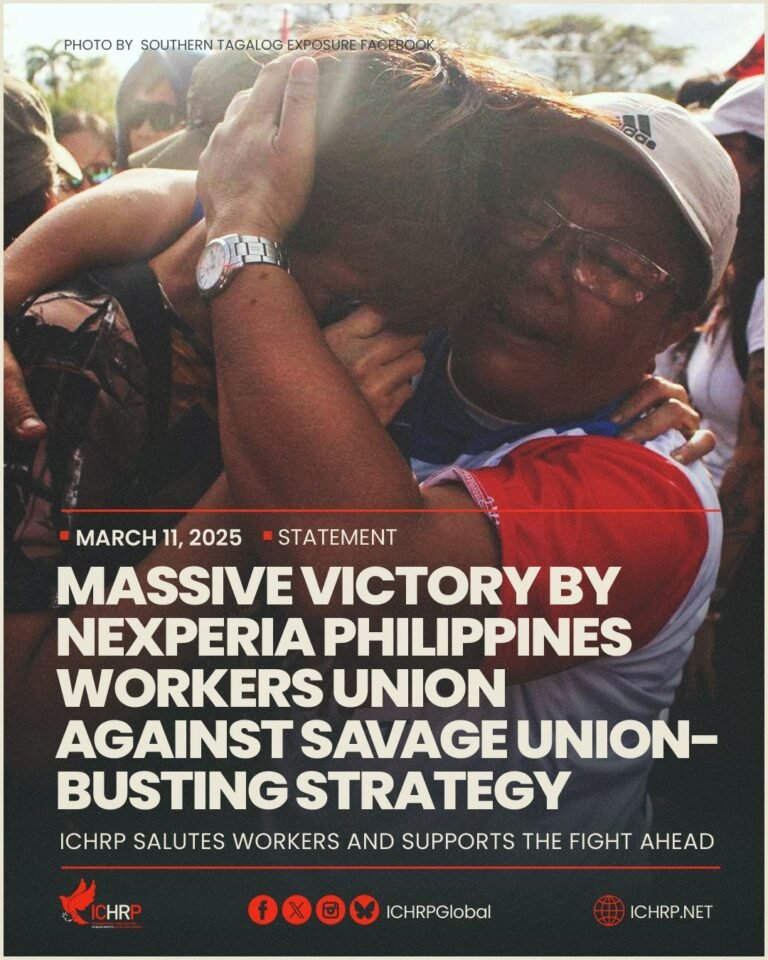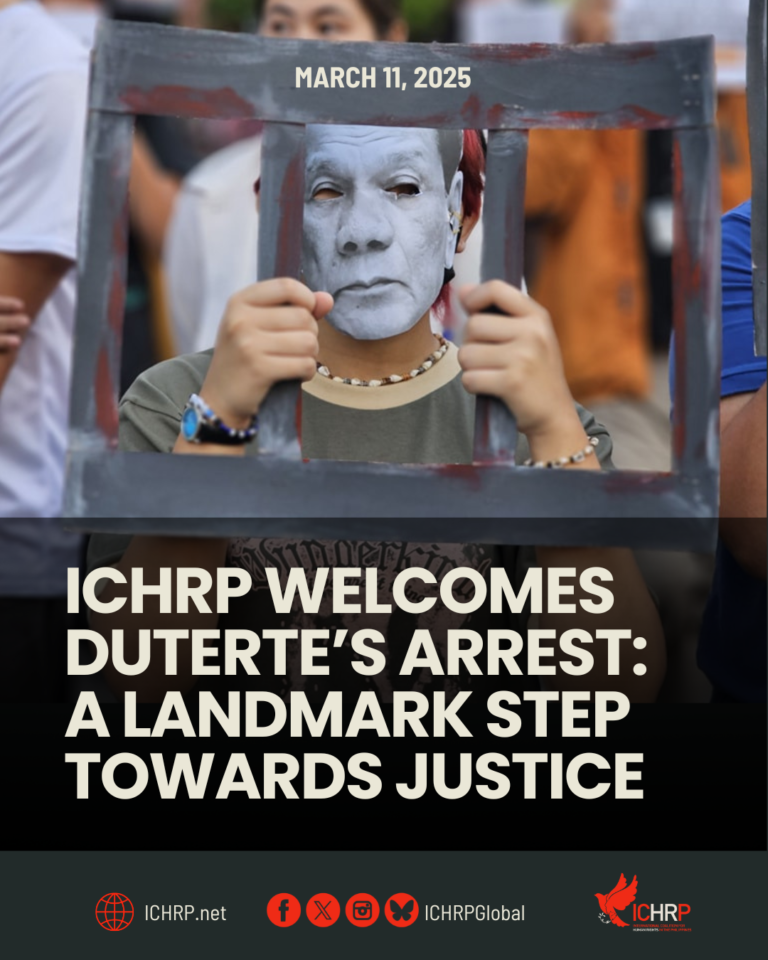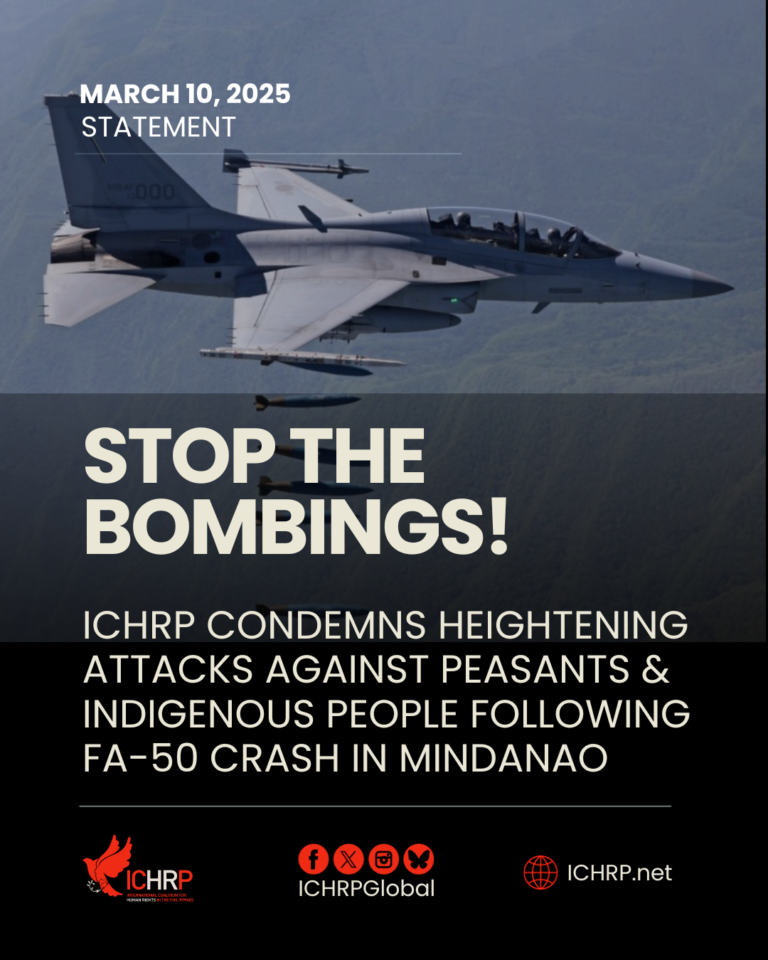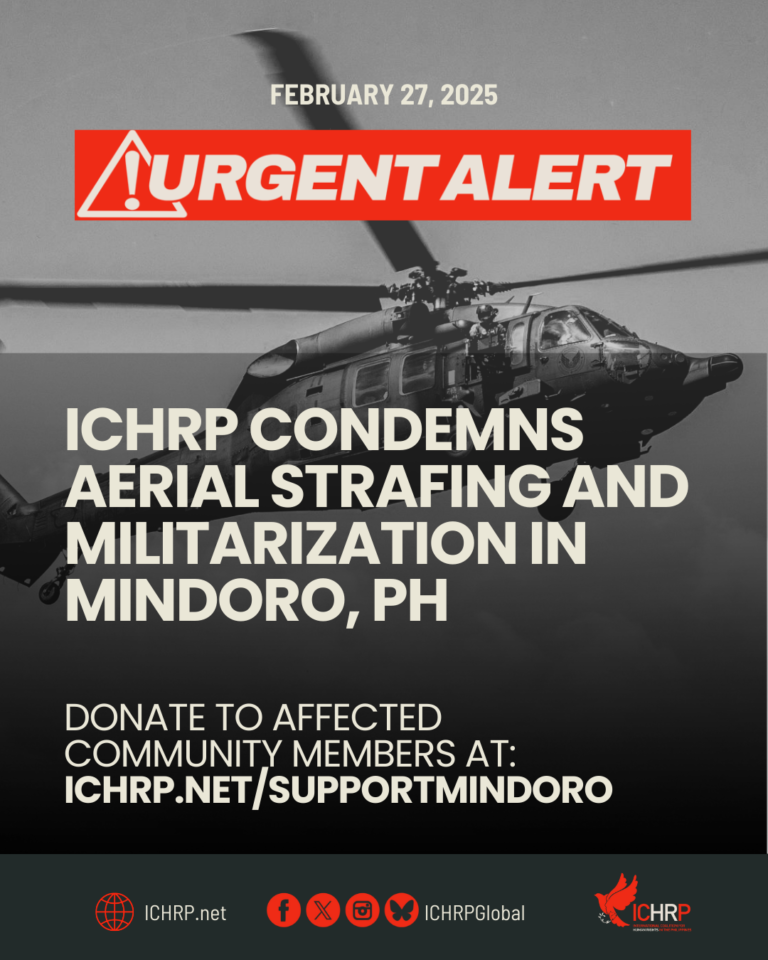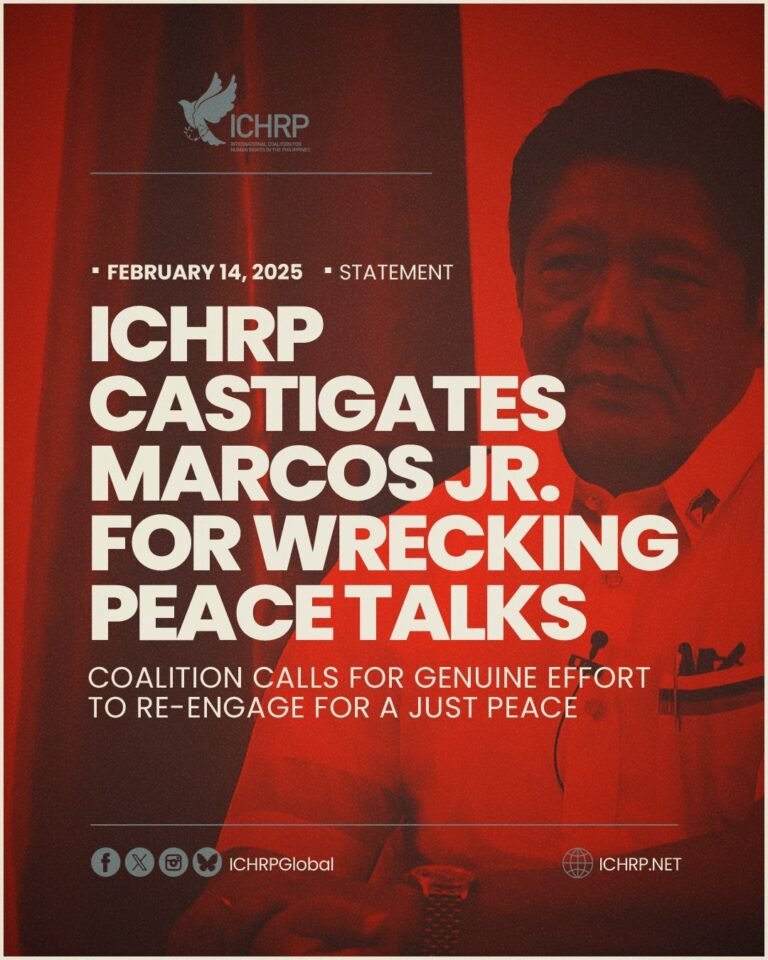ICHRP Salutes Workers and Supports the Fight Ahead
Statement
March 11, 2025
On March 5, the Nexperia Philippines Inc. Workers Union – NAFLU – KMU (NPIWU-NAFLU-KMU) held a vote of its 1,800 members at the Laguna semiconductor factory and 1,300 voted to strike. Six hundred workers occupied the factory and 600 formed a picketline at the gate of the Laguna Light Industry and Science Park 1. The management cut off water and electricity and blocked food supplies to those in the factory.
On the evening of March 7, the management launched an attack on the picket line, but the solidarity of the union members and their allies defeated the attempted dispersal. Next day, International Women’s Day, the management agreed to the two basic demands of the workers. Later that evening the occupying workers marched triumphantly out to the picketline, where there were tears among the heartfelt jubilation.
The strike had won!
The company had agreed to increase the daily wage by a modest P50 (US$0.87) and to reinstate two for the four union leaders it had dismissed illegally during Collective Bargaining Agreement (CBA) negotiations in December 2024. The union will take legal action to have the other two reinstated. All workers will receive a P20,000 (US$350) signing bonus.
The Nexperia workers victory comes after a long struggle in the face of intense repression. During 2023 and 2024, agents of the National Task Force to End Local Communist Armed Conflict (NTF-ELCAC) demanded that the Nexperia Union and others in the Southern Tagalog region disaffiliate from NAFLU-KMU, and even visited the workers at their homes to threaten them and their families, accusing them of supporting terrorism. Such attacks exemplify the pattern of counterinsurgency tactics used against civilians in the Philippines. The failure to distinguish between civilians and armed combatants marks a violation of international humanitarian law.
The Marcos Jr government has been previously exposed by the International Labour Organization (ILO) High Level Tripartite Mission in January 2023 for gross violation of the Freedom of Association, based on 65 cases of union leaders being murdered over the previous six years. Despite undertaking to make major reforms and to cease defining trade union activity as terrorism, the Marcos Jr. regime continued the fierce repression. The attack on the Nexperia workers is a major part of this repression, which aims to eliminate genuine trade unions as a key component of the national democratic movement in the Philippines.
The International Coalition for Human Rights in the Philippines (ICHRP) demands that the repression of the workers’ movement cease and that the Marcos Jr. regime fulfill its commitments to the ILO. Until this happens, ICHRP urges all democratic governments to suspend all military and police aid to the Philippines.
More background on the dispute
In 2023, management dismissed 37 workers citing poor productivity. In April 2024, another 54 workers were terminated. On June 30, 2024, following a union protest, a further 326 were targeted for dismissal. The company argued that it wanted a four-fold increase in the level of automation then in place.
NPIWU-NAFLU-KMU filed a Notice of Strike (NOS) on June 26, 2024, in the middle of the CBA negotiations, on the grounds of unfair labor practices.
In September 2024, the NOS was lifted when the company made a small but significant concession. Although the sought-after reinstatement of workers was not achieved, some provisions in the CBA were secured, and negotiations continued. As the CBA negotiations progressed, the union lowered its daily wage increase demand to P45 (US$0.79), but the company still did not improve its offer, maintaining it at P17 (US$0.30), which was far below the previous CBA’s daily wage increase of P38 (US$0.66).
The workers continued their actions inside and outside the plant to fight for their CBA. In response, the company illegally dismissed the four union leaders on Human Right Day December 10, 2024— President Mary Ann Castillo, Vice President Antonio Fajardo, Public Relations Officer Girlie Batad, and Council Member Marvel Marquez, because they held mass meetings inside the workplace to report on management’s refusal to negotiate a reasonable wage increase. The union filed an NOS for Unfair Labor Practice (ULP), with 1,195 voting in favor of the strike on December 19, 2024.
During 2023 and 2024, agents of the National Task Force to End Local Communist Armed Conflict (NTF-ELCAC) demanded that the Nexperia Union and others in the Southern Tagalog region disaffiliate from NAFLU-KMU. When this failed, the NTF-ELCAC agents visited the workers at their homes to threaten them and their families, accusing them of supporting terrorism. But the union leaders and members refused to be intimidated.
On February 5, 2025, Department of Labor and Employment (DOLE) Secretary Bienvenido Laguesma issued an Assumption of Jurisdiction (AJ) over the workers’ strike, forbidding any strike by declaring it a matter of “national interest”. Nexperia is a major exporter, contributing $2.8 billion each year. The factory produces 7 million semiconductors per day.
After the AJ, there were 21 CBA negotiating sessions and three more conciliation hearings. Faced with the stonewalling of the management, the union called on the vote strike on March 5. On March 7, DOLE ordered a return to work.
About Nexperia
Nexperia Phils. Inc. is part of a multinational semiconductor company that manufactures chips used in the automotive industry, electric vehicles, cellphones, and more. Its clients include Bosch, Continental, Denso, Huawei, Neltz, Tesla, Xiaomi, and Samsung.
The company is headquartered in the Netherlands and China. In addition to the Philippines, it has manufacturing and assembly sites in Germany, the United Kingdom, and Malaysia.
In 2017, WingTech acquired Nexperia. WingTech is partially state-owned by China and by Wing Zhang. Aside from Nexperia, the company has other subsidiaries across various industries.
In 2015, NXP Semiconductors launched a concerted union-busting strategy against its workforce, but the union members had been thoroughly organising at the factory, in the industrial park, in the community through the Metal Workers Alliance of the Philippines and internationally through IndustriAll. After an intense three-month struggle of rallies and strikes, the union defeated the company and won a significant CBA, but some of its leaders paid the price of their jobs to secure this victory.
Originally, the company was known as Philips Semiconductors, based in Las Piñas. In 2006, Philips sold 80.1% of its shares to U.S. investors, leading to the company being rebranded as NXP Semiconductors. Its products focused on communication technologies, such as chips for cellphones and base stations (cell sites).
In 2017, the company became Nexperia Semiconductors, shifting its production focus to the automotive industry. According to Nexperia’s website, the company proudly produces over 90 billion essential semiconductors annually.




